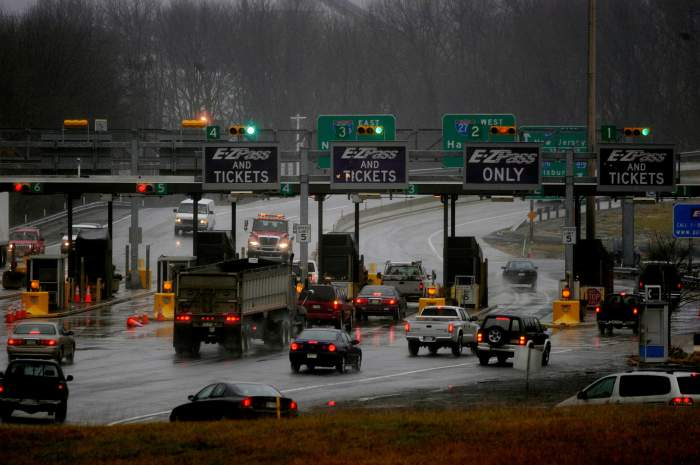The Suffolk County district attorney is calling for lawmakers to address marijuana-impaired driving following a fatal car accident last summer in which high levels of the drug was found in the driver’s system. Steven Birenbaum, of Swampscott, Mass., had marijuana and alcohol in his blood the night his Subaru Legacy crashed into an airport shuttle van on Aug. 31, killing two passengers in the van, Suffolk County District Attorney Daniel Conley said. Joseph A. Rodriguez, 59, and Sandra L. Arreola, 56, both of El Paso, Texas, died when they were thrown from the vehicle after the collision on Route 90 in East Boston. They had just flown into Logan Airport. Birenbaum was held on $5,000 cash bail Monday, charged with two counts of manslaughter and motor vehicle homicide while operating under the influence. His blood–alcohol level was reported twice the legal limit and the marijuana byproduct THC was found in both his urine and blood, authorities have said. “Cases like this one speak to the urgency with which lawmakers should address marijuana-impaired driving,” Conley said. “It’s a proven fact that driving under the influence of marijuana is every bit as dangerous as it is for alcohol, but unlike alcohol, we don’t yet have a way to quantify a driver’s impairment from marijuana,” Conley said in a statement. Colorado and Washington, states that legalized recreational marijuana in 2012, have laws for dealing with stoned driving by declaring impairment based on THC levels in the bloodstream. But, no rapid and reliable means of testing marijuana impairment exists. “Massachusetts has neither an established impairment level nor an efficient means to test for one. Policymakers should be aware of this knowledge gap and take steps to bridge it if we expect to identify and prevent THC impairment among drivers,” Conley said, referring to tetrahydrocannabinol, the active ingredient in marijuana. While retail operations are much further off, the Massachusetts ballot law approved Nov. 8 decriminalizes the use of marijuana by individuals 21 and older. It also allows people to possess up to one ounce of marijuana outside of their residences and up to 10 ounces of marijuana inside their homes, to grow up to six marijuana plants in their residences and to give one ounce or less of marijuana to a person at least 21 years old without payment. The law takes effect Dec. 15. Marijuana advocates met in state Senate President Stanley Rosenberg’s office on Monday afternoon to discuss the steps required to create a legal marijuana market in Massachusetts and the timeline for it. “We’re certainly open to working with the Legislature. If they feel it’s important to extend the time limits, we’re open to working with them around that,” said Will Luzier, a former assistant attorney general who led the “Yes on 4” ballot question campaign. “But our position is now that Colorado did it in the same time frame that we have proposed and we’re looking forward to their implementing the law in the way it was written.” – State House News Service contributed to this story.
Marijuana-impaired driving case speaks to need for ‘urgent’ drug law, DA says

Flickr


















